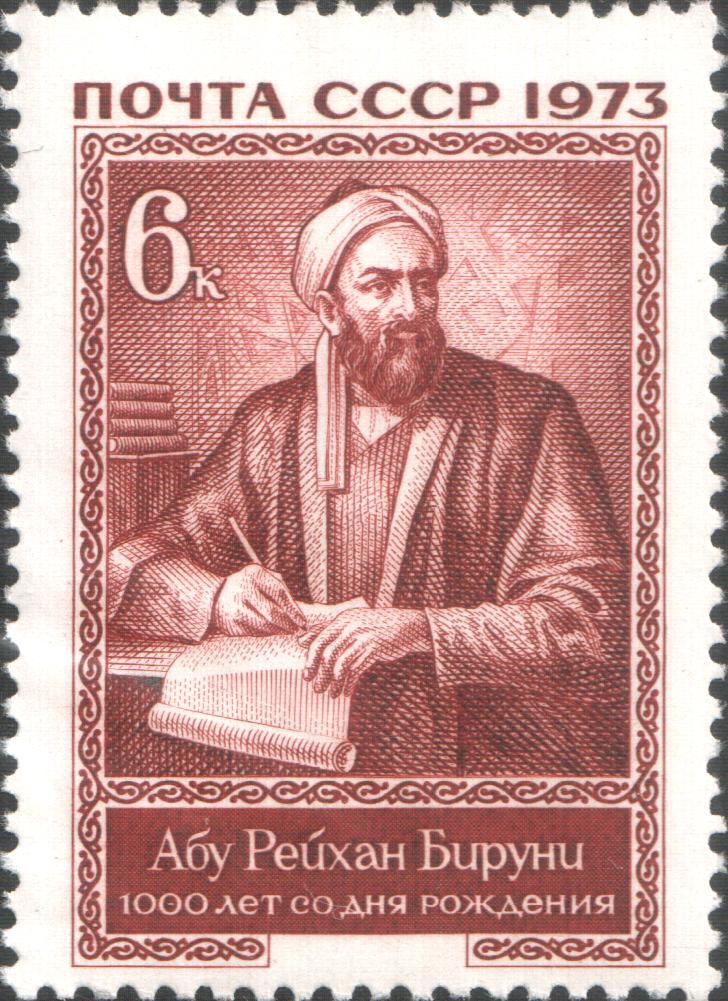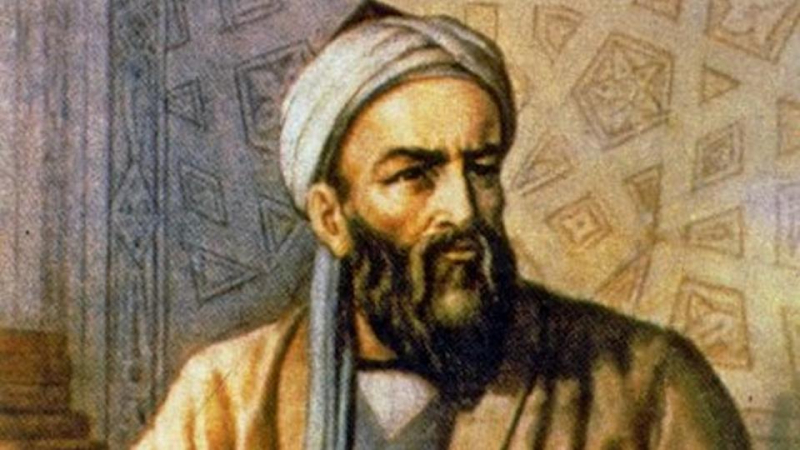Al-Biruni
Abu Rayhan Muhammad ibn Ahmad al-Biruni (973 - after 1050) was a Khwarazmian Iranian polymath and scholar during the Islamic Golden Age. He was born in Kath's outer district (Bīrūn), the capital of the Afrighid dynasty of Khwarezm (Chorasmia) in Central Asia, which is now part of the autonomous republic of Karakalpakstan in Uzbekistan's northwest. Amon gthe most important historical figures in Uzbekistan, he has been variously referred to as the "Father of Comparative Religion," the "Father of Modern Geodesy," and the "Father of Indology."
Al-Biruni was well-versed in physics, mathematics, astronomy, and natural sciences, and he also distinguished himself as a historian, chronologist, and linguist. He studied almost all of the sciences of his day and was rewarded abundantly for his tireless research in many fields of knowledge. Al-Biruni was a gifted linguist who spoke Khwarezmian, Persian, Arabic, and Sanskrit, as well as Greek, Hebrew, and Syriac. He spent much of his life in Ghazni, the Ghaznavids' capital in modern-day central-eastern Afghanistan. After exploring the Hindu faith practiced in India, he traveled to the Indian subcontinent in 1017 and wrote a treatise on Indian culture entitled Tārīkh al-Hind (History of India). He was, for his time, an admirably impartial writer on the customs and creeds of various nations, his scholarly objectivity earning him the title al-Ustadh ("The Master'') in recognition of his remarkable description of early 11th-century India.







